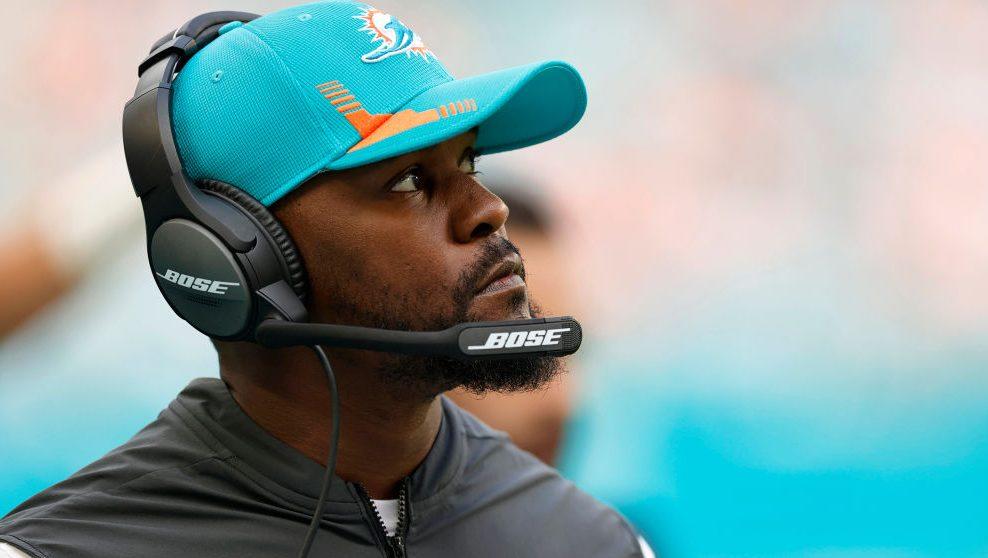
The landmark lawsuit filed by former Dolphins coach Brian Flores against the NFL and three of its teams promises an inevitable trial in open court, featuring compelling testimony from and interrogation of persons like Roger Goodell, Stephen Ross, John Mara, John Elway, Bill Belichick, and more.
Unless it doesn’t.
The NFL’s first line of defense when defending against the Flores lawsuit inevitably will be that the case cannot be processed in court and that it must be resolved via arbitration. Although PFT has not yet seen the key language contained in Flores’s contract with the Dolphins, all teams use a provision requiring any disputes between coach and team to be resolved not in court but through an arbitration process that necessarily stacks the deck in favor of the team.
Here’s the relevant language, directly from another head coach’s contract: “[Coach] agrees that . . . all matters in dispute between [Coach] and Club, including without limitation any dispute arising from the terms of this Agreement, shall be referred to the NFL Commissioner or a Commissioner-appointed representative for the NFL for binding arbitration, and the decision shall be accepted as final, conclusive and unappealable.”
The NFL undoubtedly will file a motion to compel arbitration. Beyond getting the case to a very favorable forum (the Commissioner or his appointed representative won’t be inclined to rule against one of the Commissioner’s 32 constituents), arbitration removes the case from a public docket with public filings and public proceedings. While the league’s lawyers undoubtedly would work hard to insist on most matters in a traditional court proceeding being filed “under seal” and thus kept out of view, a trial eventually would happen in an open courtroom, with no relevant testimony nor admissible documents hidden from anyone.
In arbitration — especially arbitration handled by the Commissioner — that won’t be the case. There will be no access to documents or witness transcripts, unless those items are leaked. The “arbitrator” likely will restrict significantly the scope of discovery.
Flores undoubtedly will fight, arguing that the Commissioner or his representative can’t be fair. The league and the other teams will argue that the parties agreed to the process, an argument that helped the league eventually enforce the four-game Deflategate suspension of Tom Brady. Flores may argue that the arbitration agreement he signed is a “contract of adhesion,” a take-it-or-leave provision included in every NFL head-coaching contract that forces the party to accept the terms or not become an NFL head coach.
Flores also could try to separate the claims against the Dolphins from the claims against the NFL itself, the Giants, and the Broncos. The fact that former Raiders coach Jon Gruden sued the NFL and Goodell (and not the Raiders) didn’t keep the league from making a front-line effort to force the case to arbitration. Still, by its terms, the arbitration provision arguably applies only to claims against the Dolphins.
Finally, there’s this. At paragraph 25 of his complaint, Flores vows to file an administrative claim with the federal Equal Employment Opportunity Commission. That process cannot be short-circuited by an arbitration agreement. While it wouldn’t result in a full-blown trial in the usual sense, there could eventually be a public hearing with testimony and documents, if it comes to that.
The point for now is that the end result of the Flores lawsuit may not be a full-blown Seinfeld finale trial. If the league has its way, the civil claims made by Flores will be swept under the same rug where the results of the Washington Commanders investigation resides.
Arbitration clause could quickly derail the Brian Flores lawsuit originally appeared on Pro Football Talk
